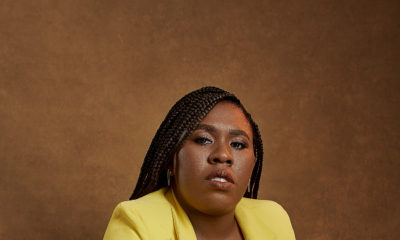Features
Adebayo Adeleke: Building Better Opportunities For Women in Business

The world today is making progress in ensuring the representation of women at every level, ensuring women inclusion and gender equality: more girls are going to school, fewer girls are forced into early marriage, more women are serving in parliament and positions of leadership, more women are owning businesses, and laws are being reformed to advance gender equality.
Unfortunately, we still have more women being plunged deeper into poverty, their names unknown and their works unaccounted for. And while every leadership level has seen an increase in representation through the years, for women, the executive level has seen a slight decline in recent times. The World Economic Forum’s Global Gender Gap report says that the world is now going backwards on its long road to gender equality. The time required is now forecast at 136 years as opposed to the 100 years slated in 2020. In fact, a closer look at the report shows that economically, it will take 268 years to close the gender gap between men and women.
It looks like we still have so much work to do.
The month of March is one of the most celebrated months for women. It is set aside, not just to celebrate women’s achievements and contributions to history, culture and society, but to also pay attention to areas where augmentations and improvements need to be made, especially in the labour force.
Female entrepreneurship and self-employment, in general —working without a boss, be it in micro, small, medium, and large enterprises — has become an important vehicle for women’s empowerment. Still, only 1 in 3 small, medium, and large businesses are owned by women globally. Female participation in business ownership is positively correlated with countries’ income level, but only to a small extent. In low-income countries, only 1 in 4 businesses have any female owners. In middle- and high-income countries, the rates are at 36% and 37%, respectively.
The World Bank documents that a major problem local women-owned businesses face is the lack of access to the same business and community networks that male-owned businesses do, meaning that they might not know about upcoming tender opportunities and they might have a harder time competing against more networked competitors.
In global supply chains, for instance, the statistics are also bleak. Compared to men, women are working at the bottom of global supply chains. If there’s one thing statistics like these have shown us, it is that we need more resources – easy access to knowledge, finances, enabling environment, and so on – for women in businesses to thrive.
As a supply chain expert, I have realised that one of the major problems hindering women in businesses from upscaling is the lack of knowledge in the supply chain industry and of the role it plays in the success of businesses.
In the month of March, a lot of events are organised to help women in businesses and as common or cliche it may look, events like this are super important because women in business contribute significantly to the world’s developing economy, and it has become necessary to further support and advice to assure continued success.
That is why I decided, for International Women’s Day, to put together a free webinar led by female industry thought-leaders who are willing to share their experiences and insights in order to help women-driven emerging businesses upscale and develop competitive supply chains that drive increased revenue.
Beyond networking with other women in businesses, I hope to create a safe space where women can share their entrepreneurial challenges and, in the same vein, learn how to tailor their supply chain management in a way that will foster their business growth.
As the pandemic rages on in many parts of the world, economies are hanging by a thread and businesses are bleeding. The 8th of March presents an opportunity for all of us to build better, and the webinar is one of the ways we will help more women in businesses upscale in their various sectors. As we partner with many women-led organizations and have women business owners share their experiences, challenges, and give their insights on how they keep their businesses afloat, I can only hope that more women business owners will be inspired, connect better with other women and that the gender gap is bridged in coming years.





















